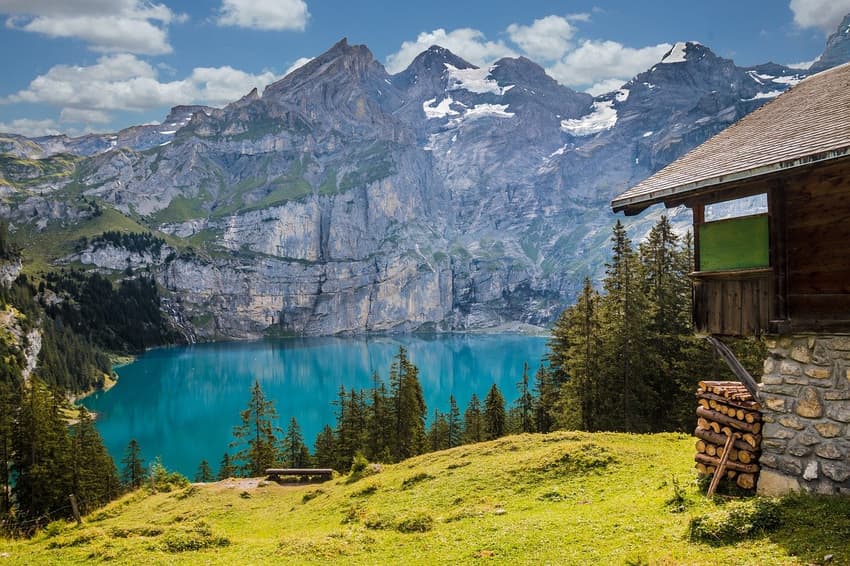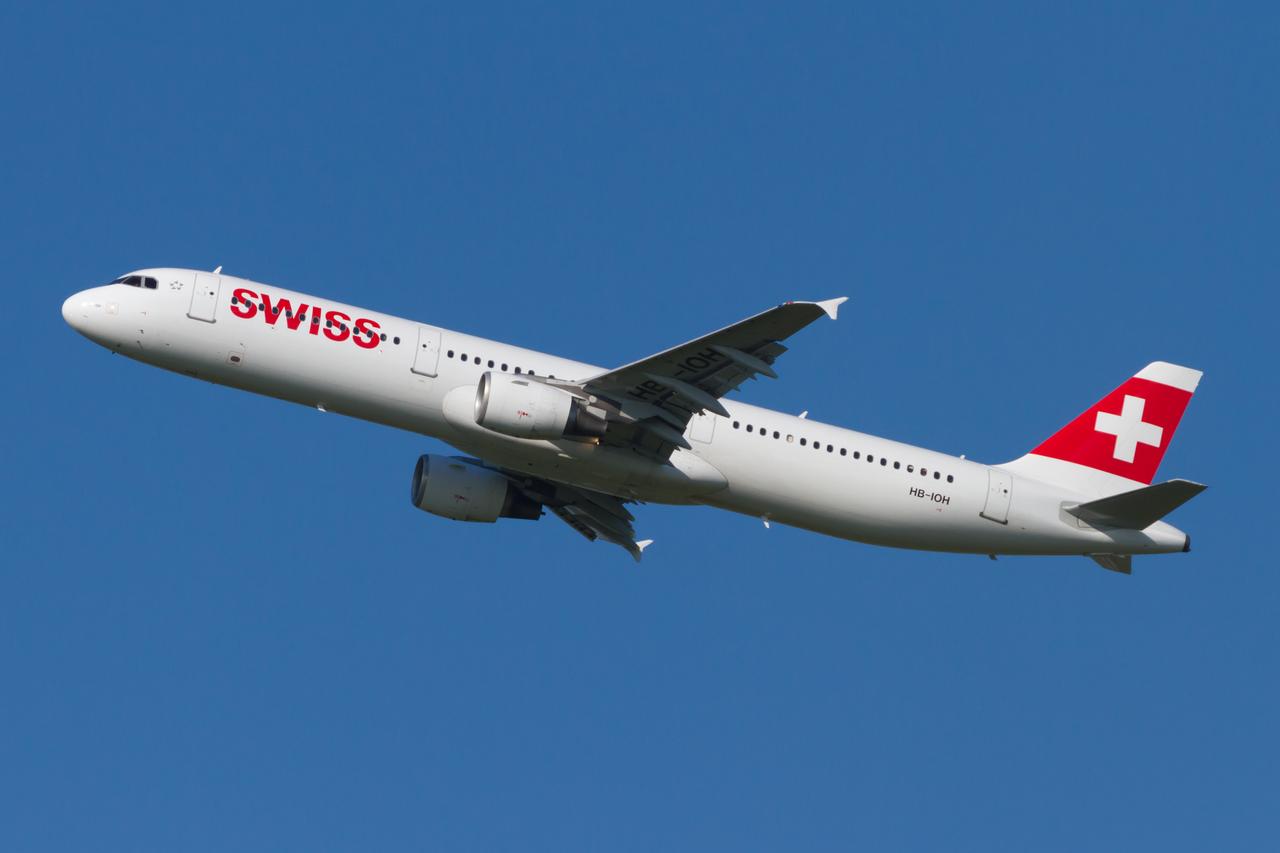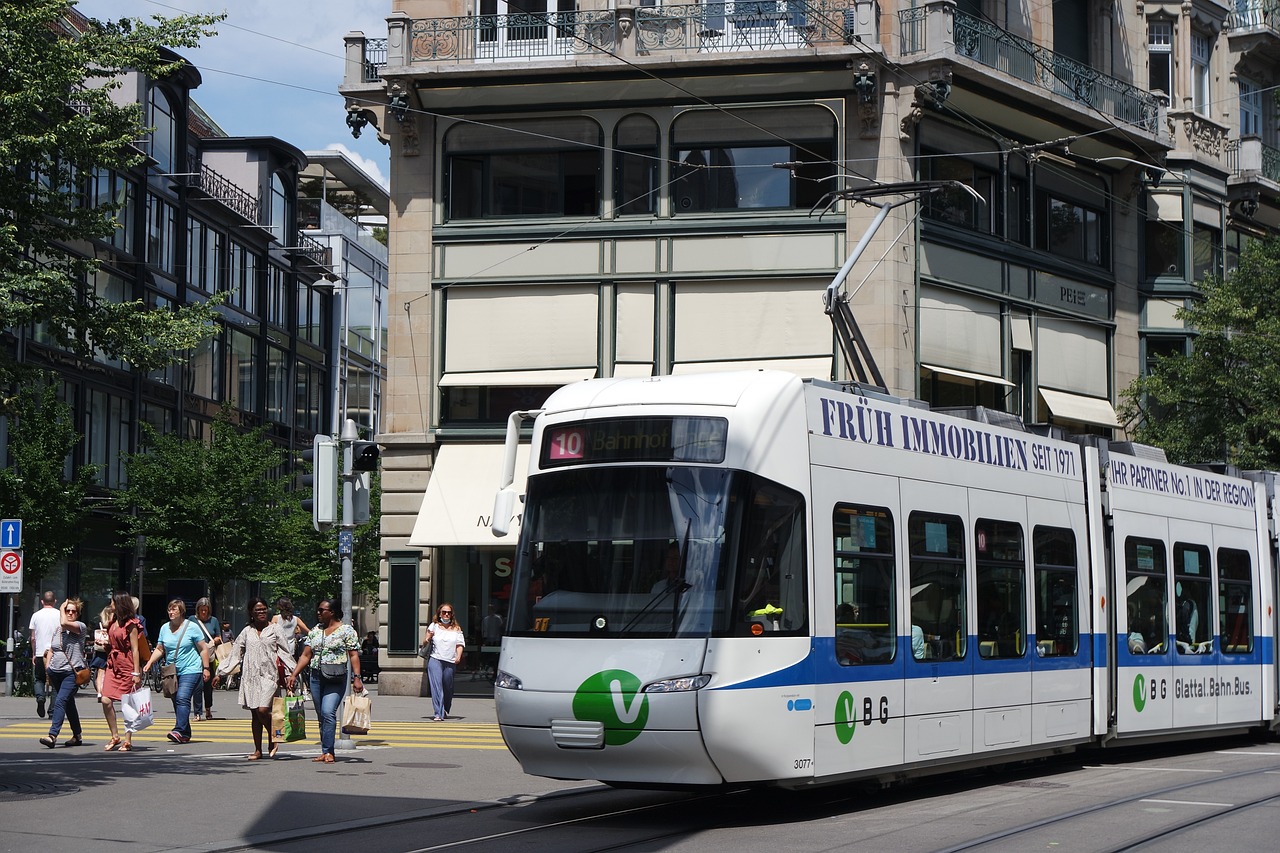Holiday homes and public transport: What's getting more expensive in Switzerland?

Inflation has been rising slightly overall in Switzerland - but some items are rocketing upwards in price. We look at what's getting more expensive, as well as the items getting cheaper.
Switzerland is no cheap country, that's for sure. If you live here, you'll know that consumer prices are more expensive in general compared to nearby countries in Europe, although the higher salaries should ease some of the pressure.
Regardless, residents in Switzerland like to keep a close eye on what's going in and out their wallet.
What's the big picture?
According to data from the Comparis Consumer Price Index, prices for everyday goods in Switzerland rose by 1.9 per cent in December 2023 compared to the same month the previous year. Compared to November, consumer prices rose by around 0.1 percent.
In October, the cost of everyday goods had fallen by 0.8 percent.
But there are a lot of differences depending on the items in question. The franc continued to appreciate against the euro and the US dollar in December, making imported goods such as fuel and heating oil cheaper. However, consumers had to spend significantly more on holiday accommodation.
Here's a look at the items rocketing in price and what's easing off, according to the latest research.
Holiday homes
Perhaps not surprisingly, the cost of vacation rentals tend to go up and down on a seasonal basis.
But the Comparis Consumer Price Index shows a hike in costs in December compared to the previous month (and the previous year), signalling a trend.
While hotel prices rose by 2.5 percent in December compared to the previous month, prices in the para-hotel sector (i.e. holiday accommodation) rocketed upwards by 22.4 percent.
"Prices for holiday flats literally exploded in December," financial expert Dirk Renkert from Comparis said.
"Although sharp rises were also observed last December, prices rose by a whopping 11 percent compared to the previous year because the demand for holiday flats was significantly higher than the available supply despite higher prices."
Prices for holiday flats are subject to strong seasonal fluctuations, but consumers "seem to be willing to accept the higher prices", added Renkhert.
READ ALSO: How prices of Swiss mountain homes are expected to drop
Air travel
Consumers also have to pay more for air travel in Switzerland. Prices rose by 6.4 percent in December 2023 compared to November. And compared to the same month in the previous year, ticket prices rose by 11 percent, according to Comparis data.

A SWISS flight. Photo: SWISS media.
"The number of passengers travelling by air reached new record levels in December and was higher than before the coronavirus pandemic," said Renkert.
"Increased demand is being met with reduced capacity, as supply chain problems are causing delays in the production of new aircraft and new spare parts. Airlines are also facing rising labour costs and a shortage of skilled workers. This is leading to rising flight prices."
Public transport
The cost of using public transport in Switzerland rose by 3.6 percent in December compared to the previous month. This comes following the first price increase in seven years introduced by Alliance SwissPass, the public transport industry organisation and association of transport companies.
The organisation said the hike was needed to compensate for an expanded range of services as well as increased labour, maintenance and energy costs. The federal government's announcement that it would provide less funding for regional passenger transport in the new year also contributed to this hike, Alliance SwissPass said.
READ ALSO: Why Switzerland has the most expensive public transport in the world
Other services for private transport (up 5.3 percent), jams and honey (up 4.7 percent) and margarine, edible fats and oils (up 3.9 percent) are also among the items with steep rising prices in December compared to the previous month.
 A tram in Zurich. Photo: janmaybach from Pixabay
A tram in Zurich. Photo: janmaybach from Pixabay
What's getting cheaper?
It's not all bad news for your wallet. Some products became cheaper in Switzerland in December.
For example, consumers paid 7.6 percent less for ice cream than in November, according to the research. Package holidays also became cheaper, by 4.6 percent compared to the previous month.
Prices for sparkling wine from the supermarket dropped by 4.5 percent, coffee went down 3.5 percent and fuel dropped by 3.4 percent.
Switzerland lags far behind other parts of Europe in terms of inflation.
A look beyond the country's borders shows that compared to the same month last year, inflation in Switzerland was lower than in the eurozone. According to Eurostat, the statistical office of the EU, prices in eurozone countries rose on average by 2.9 percent in this period.
In December, the inflation rate was 0.2 percent for the eurozone compared to the previous month.
READ ALSO: How is Switzerland managing to keep inflation low?
Which parts of Switzerland see the highest inflation?
Broken down by language region, Comparis found that German-speaking and Romansh-speaking Switzerland recorded the highest year-on-year inflation at plus 1.9 percent. Meanwhile, in December, the consumer price level rose by 0.1 percent compared to the previous month.
The comparatively lowest year-on-year inflation was recorded in Italian-speaking Switzerland at plus 1.7 percent. Compared to the previous month, the price level remained almost unchanged in December.
Comments
See Also
Switzerland is no cheap country, that's for sure. If you live here, you'll know that consumer prices are more expensive in general compared to nearby countries in Europe, although the higher salaries should ease some of the pressure.
Regardless, residents in Switzerland like to keep a close eye on what's going in and out their wallet.
What's the big picture?
According to data from the Comparis Consumer Price Index, prices for everyday goods in Switzerland rose by 1.9 per cent in December 2023 compared to the same month the previous year. Compared to November, consumer prices rose by around 0.1 percent.
In October, the cost of everyday goods had fallen by 0.8 percent.
But there are a lot of differences depending on the items in question. The franc continued to appreciate against the euro and the US dollar in December, making imported goods such as fuel and heating oil cheaper. However, consumers had to spend significantly more on holiday accommodation.
Here's a look at the items rocketing in price and what's easing off, according to the latest research.
Holiday homes
Perhaps not surprisingly, the cost of vacation rentals tend to go up and down on a seasonal basis.
But the Comparis Consumer Price Index shows a hike in costs in December compared to the previous month (and the previous year), signalling a trend.
While hotel prices rose by 2.5 percent in December compared to the previous month, prices in the para-hotel sector (i.e. holiday accommodation) rocketed upwards by 22.4 percent.
"Prices for holiday flats literally exploded in December," financial expert Dirk Renkert from Comparis said.
"Although sharp rises were also observed last December, prices rose by a whopping 11 percent compared to the previous year because the demand for holiday flats was significantly higher than the available supply despite higher prices."
Prices for holiday flats are subject to strong seasonal fluctuations, but consumers "seem to be willing to accept the higher prices", added Renkhert.
READ ALSO: How prices of Swiss mountain homes are expected to drop
Air travel
Consumers also have to pay more for air travel in Switzerland. Prices rose by 6.4 percent in December 2023 compared to November. And compared to the same month in the previous year, ticket prices rose by 11 percent, according to Comparis data.

"The number of passengers travelling by air reached new record levels in December and was higher than before the coronavirus pandemic," said Renkert.
"Increased demand is being met with reduced capacity, as supply chain problems are causing delays in the production of new aircraft and new spare parts. Airlines are also facing rising labour costs and a shortage of skilled workers. This is leading to rising flight prices."
Public transport
The cost of using public transport in Switzerland rose by 3.6 percent in December compared to the previous month. This comes following the first price increase in seven years introduced by Alliance SwissPass, the public transport industry organisation and association of transport companies.
The organisation said the hike was needed to compensate for an expanded range of services as well as increased labour, maintenance and energy costs. The federal government's announcement that it would provide less funding for regional passenger transport in the new year also contributed to this hike, Alliance SwissPass said.
READ ALSO: Why Switzerland has the most expensive public transport in the world
Other services for private transport (up 5.3 percent), jams and honey (up 4.7 percent) and margarine, edible fats and oils (up 3.9 percent) are also among the items with steep rising prices in December compared to the previous month.

What's getting cheaper?
It's not all bad news for your wallet. Some products became cheaper in Switzerland in December.
For example, consumers paid 7.6 percent less for ice cream than in November, according to the research. Package holidays also became cheaper, by 4.6 percent compared to the previous month.
Prices for sparkling wine from the supermarket dropped by 4.5 percent, coffee went down 3.5 percent and fuel dropped by 3.4 percent.
Switzerland lags far behind other parts of Europe in terms of inflation.
A look beyond the country's borders shows that compared to the same month last year, inflation in Switzerland was lower than in the eurozone. According to Eurostat, the statistical office of the EU, prices in eurozone countries rose on average by 2.9 percent in this period.
In December, the inflation rate was 0.2 percent for the eurozone compared to the previous month.
READ ALSO: How is Switzerland managing to keep inflation low?
Which parts of Switzerland see the highest inflation?
Broken down by language region, Comparis found that German-speaking and Romansh-speaking Switzerland recorded the highest year-on-year inflation at plus 1.9 percent. Meanwhile, in December, the consumer price level rose by 0.1 percent compared to the previous month.
The comparatively lowest year-on-year inflation was recorded in Italian-speaking Switzerland at plus 1.7 percent. Compared to the previous month, the price level remained almost unchanged in December.
Join the conversation in our comments section below. Share your own views and experience and if you have a question or suggestion for our journalists then email us at [email protected].
Please keep comments civil, constructive and on topic – and make sure to read our terms of use before getting involved.
Please log in here to leave a comment.